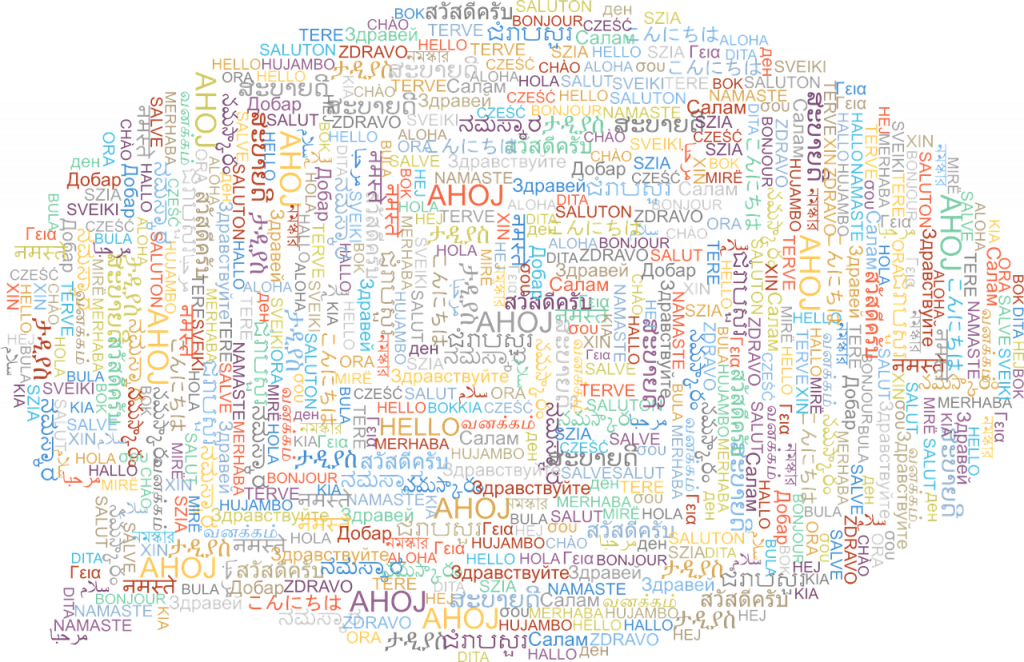
Let’s be clear from the start: This post is not about the excessive use of alcohol! This time it’s actually exactly what it says.
Several years ago, a former colleague and still good friend of mine, a Frenchwoman who lives in Germany, came into the office in the morning completely shocked. She told me that she had spoken to her mother in France on the phone that morning and in the course of the conversation wanted to tell her that she had bought a new bathrobe. But she couldn’t think of the French word for “bathrobe”! She was very startled by this and feared that she was forgetting her mother tongue.
Since I am now noticing this phenomenon more and more often in myself, I did some research and came across the website “languageattrition.org” by the German linguistics professor Monika S. Schmid, who works at the University of Essex. Here I learned that this phenomenon has a name: language attrition.
Ms Schmid lists the “symptoms” of language attrition as:
– Problems remembering some words of the mother tongue
– Use of strange idioms because word combinations and grammatical constructions of the second language are transferred to the mother tongue (e.g. “make a photo” instead of “take a photo”)
– Speaking the mother tongue with a foreign accent (*)
Now I know for sure: My friend and I are not the only ones! And that’s good to know, e.g. when I can’t remember the word “weather forecast” in a telephone conversation with my sister, which leads to diffuse paraphrases (“Where at the end of the news someone always tells you if it’s going to rain tomorrow…”) But that’s not my biggest problem – that’s more to do with point 2.
I am German and have lived in the Netherlands for more than 18 years now. Having worked for American and Indian companies here, my “working language” is 95% English. My Dutch husband and I have spent a lot of time close together during the “Covid year”, and as a result a three-language mix has crept into our communication, which now and then gets completely out of control. (“Meine Güte, what the hell ben ik aan het doen?”).
Sometimes I don’t even perceive the words as belonging to different languages any more, and this of course carries the risk that the ”uninitiated“ can no longer follow. (Malicious tongues will perhaps claim that in the past, in my exclusively German phase of life, it was also difficult to follow my narratives, but we’ll leave that aside for now.)
Professor Schmid finds encouraging words:
If you have learned your native language fully from childhood and speak it until you are about twelve years old, it will normally be quite stable and resist erosion. If you leave your country and begin to speak a new language, you may still experience some of the symptoms of language attrition (and this may feel quite upsetting for you and others), but it is unlikely that you will truly forget your mother tongue.
Any problems that you may encounter are more likely to be the result of a competition for attention and selection that takes place in your brain between your two (or more) languages. All of the different languages that we know are always to some extent ‘active’ in our mind. The more active a language is (that is, the louder it is screaming for you to pick it), the more likely it is to be selected by accident, even if you were really intending to use the other one. This state of ‘activation’ depends not only on how often you use a language, but also on how recently you have last used it. So, your native language may have gone a bit quiet over the years, but it is likely to still be there, and to still be healthy. Feed it more attention for a while, and it will come back loud and strong.”
So there is hope yet! And it’s an interesting idea that several languages are screaming inside my head… I have the idea that the three languages are singing a kind of canon in my head, from which the strangest sentences emerge:
Ich werd jetzt mal Heike bellen (should be: “anrufen”).
Dieses Formular schnapp ich nicht (from “snap ik niet = versteh ich nicht”).
Ich setz dann schon mal Tee.
Das ist doch zu geck für Worte!
Und schon sind wir in trouble!
(Our apologies to readers who are less proficient in German or Dutch. As a consolation we can offer you in the near future a follow-up article by fellow Harlequin BCO, an exile Brit who spent 12 years in the Netherlands before moving to Germany.)
I shall now do my best to get out of the habit of this linguistic confusion…
(*) The aspect of accents cannot really be conveyed by the written word. A podcast would probably be more suitable. You have been warned.
Original text: BBR
English translation: BCO
Bildquellen
- hello-3791381_1280: Gordon Johnson / Pixabay

